An air quality advisory has been issued for Metro Vancouver because of particulate matter in the air coming from wildfires outside the region.

The Ministry of Environment has also issued a smoke advisory for the Sunshine Coast and surrounding areas.
READ MORE: Fires raging across B.C. as concern for the summer deepens
“Persons with chronic underlying medical conditions should postpone strenuous exercise until the advisory is lifted,” reads a statement from Metro Vancouver.
“Staying indoors and in air conditioned spaces helps to reduce fine particulate exposure. Exposure is particularly a concern for infants, the elderly and those who have diabetes, and lung or heart disease.”
By late Sunday night, Environment Canada listed the Metro Vancouver Air Quality Health Index at a 10+, or “Very High Risk” and on Monday morning downgraded the index to 8 or “high risk”.
“Reduce or reschedule strenuous activities outdoors, especially if you experience symptoms such as coughing and throat irritation,” they said as a note for the general population.
Haze blanketed much of Vancouver and Victoria this morning, mostly due to a number of fires in the Pemberton area that exploded in growth overnight.

Get daily National news
Donna MacPherson of the Coastal Fire Centre says the haze was caused by an unusual change in the weather.
“Usually on the coast, we get the winds that blow from the ocean to the interior. Last night and today, they switched around and smoke and ash from fires in the interior are blowing out to the coast,” she said.
PHOTOS: Fires create haze blanketing B.C. in sea of yellow and orange
“Our forecasters are saying that this afternoon, we may get the air destabilizing a little bit, which may allow the smoke to lift for a little bit of time. My understanding is that it may form again tomorrow morning. So, that weather pattern may stay with us for a few days.”
Fine particulate matter is defined to airborne solid or liquid droplets less than 2.5 micrometers in diameter or less.
The advisory is expected to continue until there is a change in the current weather – which isn’t expected anytime soon.
The government has issued the following tips for people to reduce their health risk during the air advisory:
- People with heart or lung conditions should take steps to reduce their exposure to smoke and if necessary see their physician if symptoms are noted.
- Use common sense regarding outdoor physical activity – if your breathing becomes difficult or uncomfortable, stop or reduce the activity.
- Stay cool and drink plenty of fluids.
- Smoke levels may be lower indoors. However, elevated levels of smoke particles will still be present. If you stay indoors, be aware of your symptoms.
- Consider visiting a location like a shopping mall with cooler filtered air. Keep in mind that staying indoors may help you stay cool and provide some relief from the smoke, however many air conditioning systems do not filter the air or improve indoor air quality.
- Reduce indoor pollution sources such as smoking or burning other materials.
- You may be able to reduce your exposure to smoke by moving to cleaner air. Conditions can vary dramatically by area and elevation.
- Residents with asthma or other chronic illness should activate their asthma or personal care plan.
- Pay attention to local air quality reports, air quality may be poor even though smoke may not be visible.
PHOTOS: Hazy skies in Vancouver and other parts of B.C.






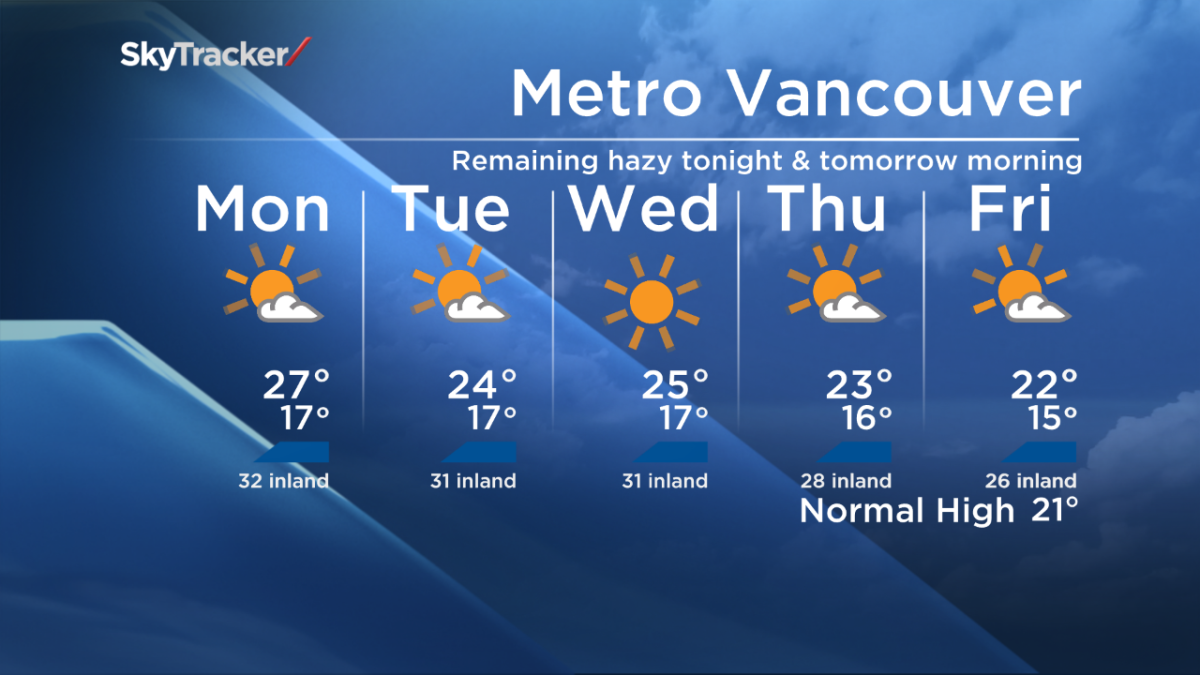









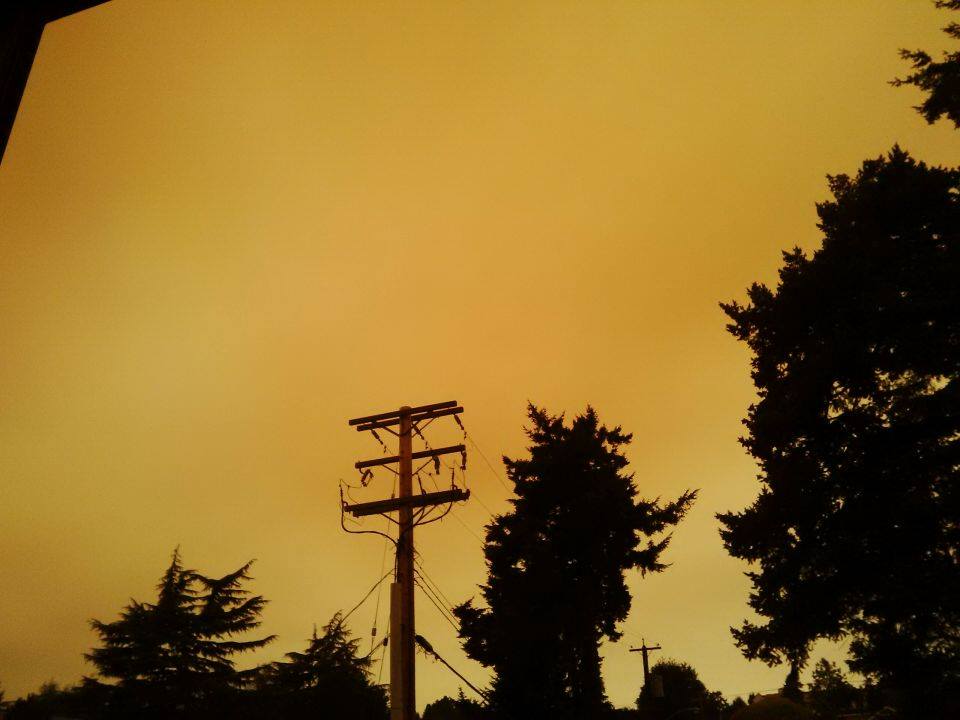

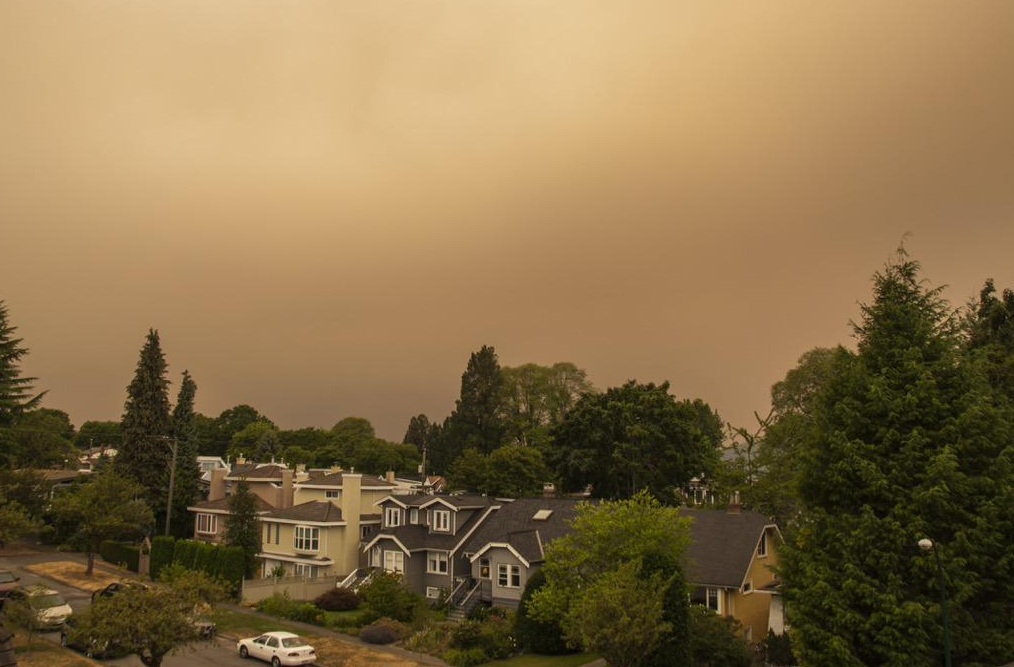

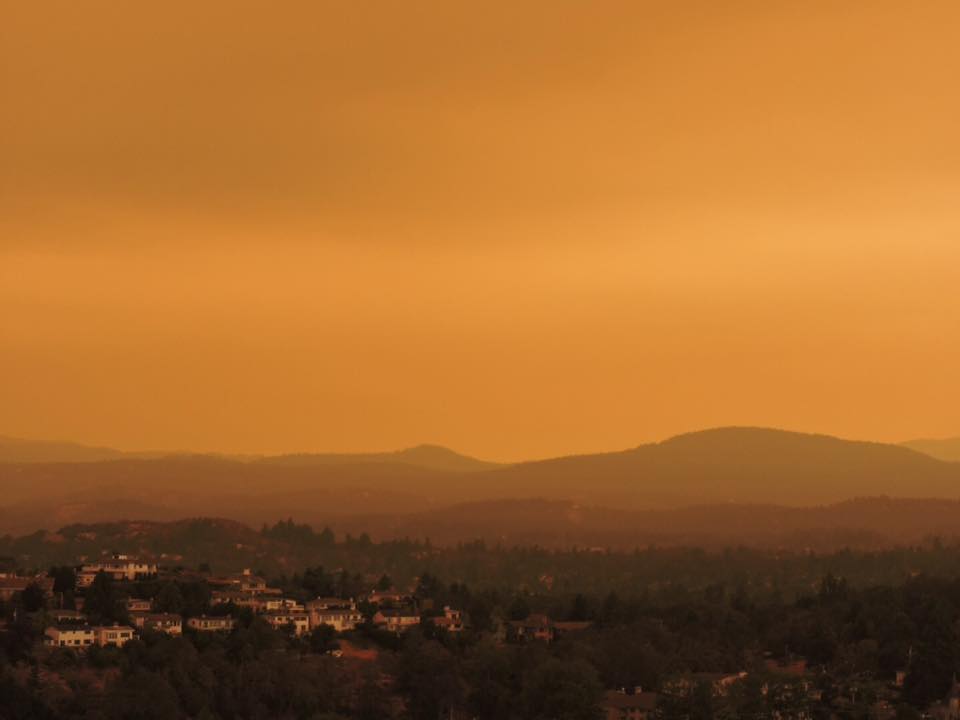

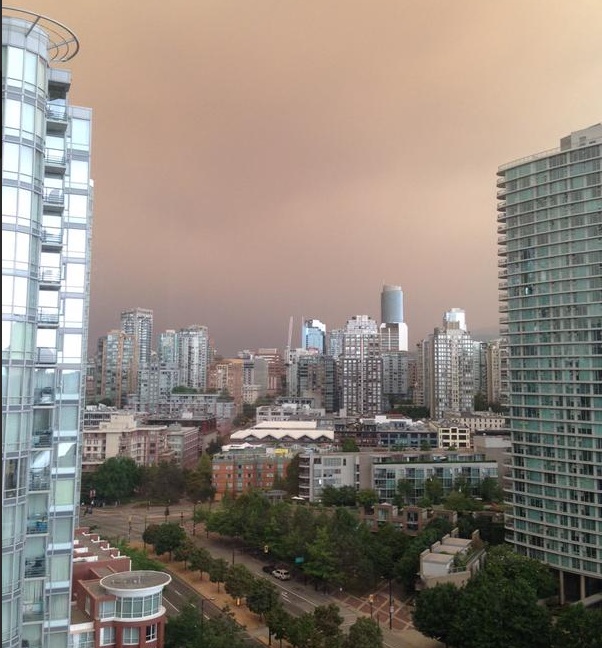





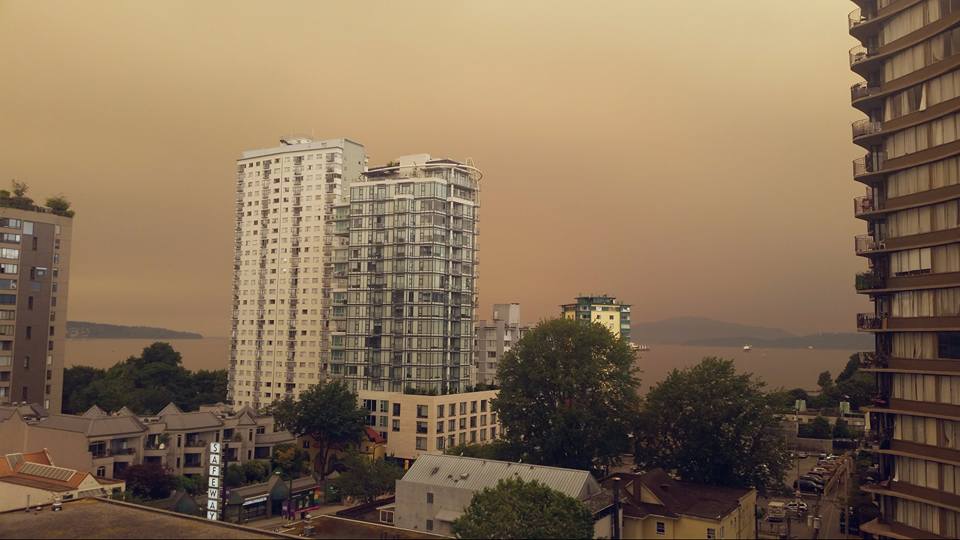






Comments